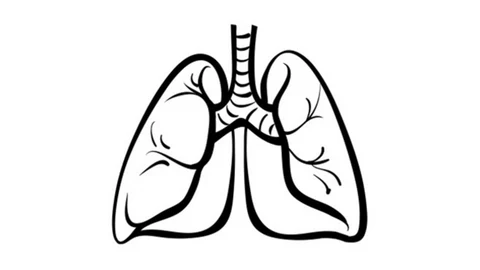The Targeted Pulse: New Pancreatic Cancer Therapy, Shifts in Lung Cancer Treatment, and More
This week's Targeted Pulse touches on the latest in cancer news and research updates.

Welcoming FDA-Approved NALIRIFOX to the Metastatic Pancreatic Cancer Arena
The liposomal irinotecan (Onivyde), 5-fluorouracil (5-FU), leucovorin, and oxaliplatin (NALIRIFOX) combination received FDA approval for patients with metastatic pancreatic cancer in the first-line setting. The combination showed improved overall survival (OS) and progression-free survival (PFS) compared with nab-paclitaxel (Abraxane) in the phase 3 NAPOLI 3 trial (NCT04083235), which is the basis for the approval.
The primary end point of the open-label, multicenter study was OS and secondary end points were PFS, overall response rate, and safety. Investigators also observed exploratory end points that included health-related quality of life and biomarker assessment.

The Massive Shift Towards Neoadjuvant Therapy in Non-Small Cell Lung Cancer
Martin F. Dietrich, MD, PhD, discussed the biggest updates in precision medicine and future developments of neoadjuvant therapies in non-small cell lung cancer.
“Just because a tumor is resectable doesn’t mean that it should be resected without the consideration for up-front treatment with a systemic immunotherapy. The reason is quite clear,” Dietrich said. Dietrich is assistant professor of internal medicine at the University of Central Florida College of Medicine and medical oncologist at the US Oncology Network in Orlando Florida.
“We’ve seen …that the neoadjuvant approaches vs adjuvant approaches demonstrate impressive HRs of 0.5. We see in our cross-trial comparisons very similar discrepancies between the neoadjuvant approaches independent of agent and the adjuvant approaches in the phase 3 PEARL [NCT03003962] and IMpower010 [NCT02486718] trials,” Dietrich said in the informative discussion.
Real-World Data Support Tafasitamab Efficacy in Diffuse Large B-Cell Lymphoma
“Those in the community should not discount their own experience. There is almost a whisper that happens where we start seeing modifications, where even though a drug was approved at this dose, at this schedule, doctors in the community within a year or 2 are doing it differently,” Bruce Feinberg, DO, vice president and chief medical officer at Cardinal Health, stated regarding the importance of real-world data confirming the efficacy of tafasitamab (Monjuvi) in relapsed or refractory diffuse large B-cell lymphoma. Feinberg discussed how the data for tafasitamab extend to underrepresented patient groups often excluded from initial studies, leading to more comprehensive data.
Awareness of Advancements Crucial for Fighting Gallbladder Cancer
Minimally invasive surgery that uses laparoscopic and robotic techniques are gaining ground in gallbladder cancer, according to Horacio J. Asbun, and Domenech Asbun, MD, both from Baptist Health South Florida, during a comprehensive discussion about bladder cancer advances.
“Lymph node dissection is something that has been advocated for a long time in the national guidelines, but a lot of recent studies are showing that surgeons do not often do enough of a lymph node dissection...There is a big emphasis now on making sure to take your time to do a proper lymph node dissection, and that can have an effect on survival, based on the studies,” explained Domenech Asbun.

Addressing Dehumanizing Language in Prostate Cancer Research
The language of respect guidelines have been in place since 2020 by the American Society of Clinical Oncology and they have 3 core principles: do not blame patients, respect the role of the patient, and do not dehumanize patients.
Regina Barragan-Carrillo, MD, medical oncologist, postdoctoral fellow, Department of Medical Oncology and Therapeutics Research, City of Hope Comprehensive Cancer Center, stated that prostate cancer abstracts containing dehumanizing language to be the most common offence, followed by blame.
“We notice that over 60% [of abstracts] have at least 1 statement that did not adhere to the guidelines,” Barragan-Carrillo said. “Talking about …the abstracts submitted not having these principles followed is definitely something that we must actively address between our colleagues.”
Thank you for joining us for this week’s Targeted Pulse. Look out for more recaps to come.